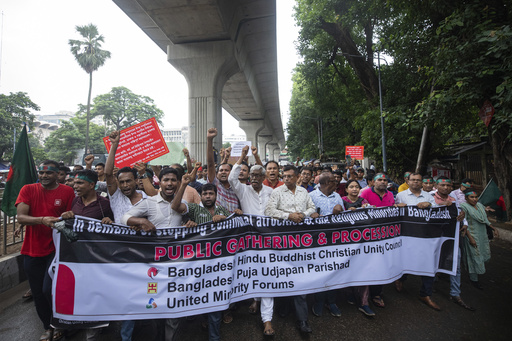In Bangladesh, Chief Justice Obaidul Hassan resigned amid ongoing protests by students and other demonstrators. The country’s interim government, led by Nobel laureate Muhammad Yunus, began operating after Prime Minister Sheikh Hasina resigned and fled to India following a mass uprising. Asif Nazrul, the adviser for law, justice, and parliamentary affairs to the interim government, confirmed the receipt of the chief justice’s resignation letter and stated that it would be forwarded to President Mohammed Shahabuddin for further action. Additionally, five other top judges in the Supreme Court also submitted their resignations as part of the government’s efforts to reorganize the judiciary.
Tensions escalated when the chief justice called for a meeting of judges from the High Court and the Supreme Court to discuss the functioning of the judiciary under the new government. Protesters gathered at the court premises, demanding the resignation of the chief justice and other top judges. The demonstrators, including student leader Asif Mahmud, emphasized the need for an unbiased judiciary free from political influence.
The student protests initially began in July over a government job quota system perceived as favoring individuals linked to Hasina’s party. The unrest intensified, resulting in more than 300 deaths, including students and police officers. Yunus, known for his microcredit work and recipient of the 2006 Nobel Peace Prize, took on the role of interim leader amidst the turmoil, promoting peace and pledging reforms. The interim government is expected to announce a new election, but the timeline remains uncertain.
Yunus visited the family of a student who died in Rangpur, sparking nationwide protests. The incident galvanized the movement, with Yunus emphasizing the need to stand united. As the government works towards addressing calls for reform and organizing elections, the country’s political landscape remains turbulent. Hasina’s Awami League party demands a fair election, while Yunus navigates the complexities of governance in a nation with a history of military intervention and political crises.
The chaos following Hasina’s resignation continues, with law enforcement facing challenges. The military’s assistance is crucial in restoring order and instilling confidence in the police force. Amidst calls for change and political uncertainties, Bangladesh grapples with a transition period overseen by an interim government striving to address the demands of the populace and prepare for a future electoral process.
